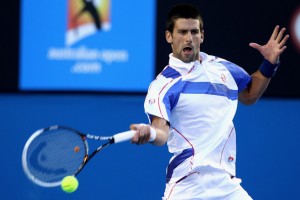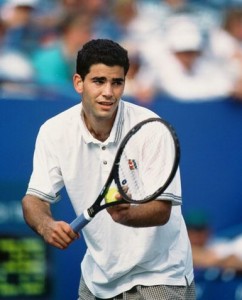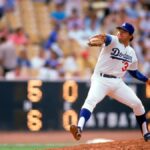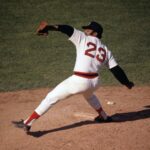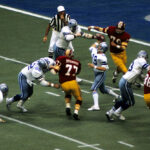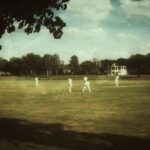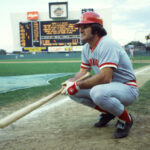Is Novak Djokovic the Next Pete Sampras?
Precise time frames escape me, but at some point in the past 18 months my good friend Rajat Jain compared Novak Djokovic to Pete Sampras.
Both men had won their first majors at a very young age (Sampras was 19, Djokovic 20) and spoke frankly of wanting to be No. 1. However, both of them soon found that Grand Slam glory brings a new weight of expectations, and both soon found themselves beset with struggles relating to their conditioning, their on-court tactics, and even their technical skills.
At the time, I couldn’t quite buy into the comparison. Sampras, for one thing, was a far bigger surprise when he won the 1990 US Open than Djokovic was at the 2008 Australian Open. Sampras had one just one title and a pair of 4th round appearances in majors going into that event. In 2007 Djokovic had won two Master’s Shields, beaten both Roger Federer and Rafael Nadal, and reached the final of the ’07 US Open.
Furthermore, Djokovic was a much more developed product than Sampras, who possessed an attacking game early on but not the best net coverage or the best instincts regarding when to go in. Pete Sampras circa 1991-92 had clear room for improvement that the Novak Djokovic of 2009-10 apparently did not.
Now, though, Rajat’s view looks prescient. Much as Sampras did, Djokovic required a retooling period of nearly three years before winning his second major. Time spent in the Davis Cup trenches paid off with a championship for Serbia in December, and Djokovic has since emerged a tougher tennis player, both physically and mentally
Struggles with service and forehand technique are a thing of early 2010, and prior respiratory problems did not emerge during a strenuous three-hour grapple with Federer in the AO semis.
Since 2003, Djokovic is the only player to have beaten Federer in straight sets at a Grand Slam event not played on clay, and he’s now done so twice. In much of 2008-10, it appeared Andy Murray had overtaken Djokovic as the biggest threat to the duopoly atop men’s tennis, but Djokovic dismissed him with ease in the final.
The win puts him within striking distance of the No. 2 position. If he takes it, his chances of reaching the finals of Roland Garros and Wimbledon improve greatly; he has reached the semis of those two events twice each, and three of those four took place when Djokovic was No. 3 and Nadal No. 2. With the Spaniard at No. 1 now, a second-ranked Djokovic would appear set for more semi encounters with Federer, but the Swiss would have to improve on both of his 2010 performances in the Euro-Slams.
The No. 1 position is one Djokovic can, and should, get to eventually, but 2011 is probably not the year. Nadal faces a monstrous load of points to defend from May on, but the fact that he has them only goes to show how imperiously the Spaniard looms over the softer surfaces. Djokovic has a natural affinity for clay, but certainly not as natural as the Spaniard, who’ll be pursuing a record-tying sixth title in Paris.
His natural athleticism has at times shone brightly on the lawns of Wimbledon, also, but Wimbledon has also been a source of setbacks for the Serb, as veterans Marat Safin and Tommy Haas exploited his discomfort on the grass in 2008 and ’09.
If Nadal’s play does start to decline over the next two or three years, then Djokovic can rightfully imagine winning anywhere, but the hard courts will probably remain the site of his most concrete successes. Jimmy Connors and Andre Agassi showed that this is not a bad way to go.
But a ceiling as high as Sampras is unlikely. The Pistol, along with Federer, Nadal, and Bjorn Borg went years appearing untouchable on at least one surface. In Australia Djokovic demonstrated the ability the beat down anyone with asphalt under his feet, but he has not yet looked peerless on that surface for long stretches of time. Then again, hard courts are the most democratic, and only Federer has proven unstoppable on them for years on end.
All that said, the Djokovic we saw in Australia is the same fierce competitor we expected post-AO 2008, with a well-rounded game, impeccable coordination, and a forehand-backhand combination as good as any. Nadal and Federer aren’t done yet, while Andy Murray and Juan Martin del Potro still have plenty of room for improvement.
But Novak Djokovic looks to have a Hall of Famer’s future, even if the Sampras comparison breaks down later.
